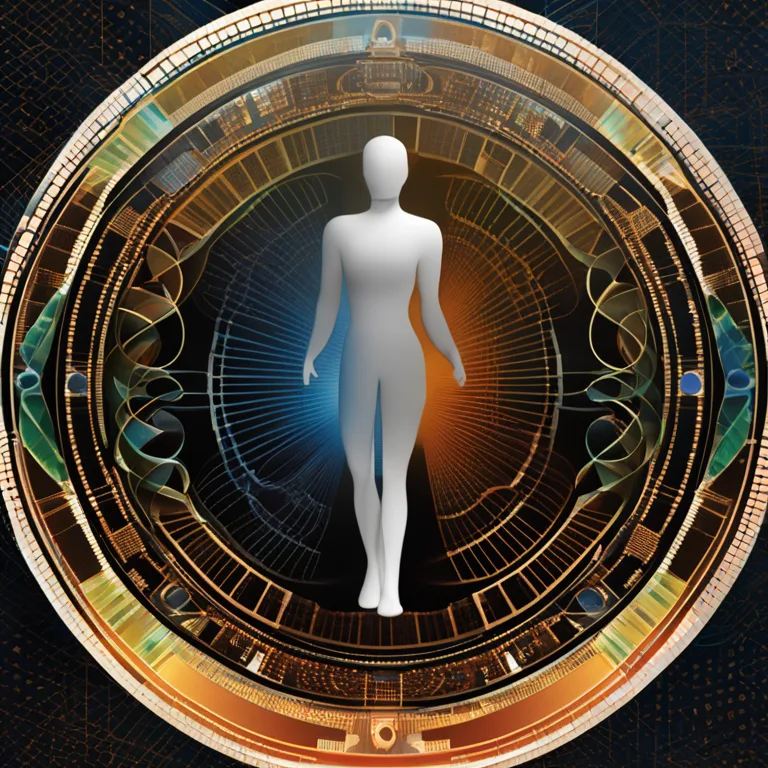
The Rhythms of Our Biology and Behavior
Delve into the intricate connection between our biological rhythms and behavior, and how understanding this link can enrich our daily lives.
article by Adrian Wallace
The Intricate Dance of Biological Rhythms
For centuries, humans have been fascinated by the ebb and flow of nature's cycles — from the waxing and waning of the moon to the changing of seasons. Yet, not all rhythms are external. Hidden within us are biological rhythms, intrinsic timekeepers that orchestrate our physical, emotional, and mental states. These rhythms, although less visible, are pivotal to our existence, influencing everything from our sleep patterns to our moods. As we advance into 2024, the study of these rhythms becomes more critical than ever, giving us keys to unlock higher levels of wellbeing and performance in a hyper-connected world.

Defining Biological Rhythms
Biological rhythms, also known as biorhythms, are the natural cycles that regulate our body functions. They range from the ultra-short-term ultradian rhythms, which include the cycle of REM and non-REM sleep, to the circadian rhythms that roughly correspond to a 24-hour period, controlling our sleep-wake cycle and hormonal secretions. Beyond these, we also have infradian rhythms, such as the menstrual cycle, and seasonal rhythms, affecting mood and energy levels across the year. These natural oscillations are imperative for maintaining health and harmony within our complex biological systems.

Circadian Rhythms and Daily Life
Among all biological rhythms, circadian rhythms have the most direct impact on our daily behavior. Governed by the suprachiasmatic nucleus in our brains, they respond to external cues like light and temperature. Their influence on sleep quality, appetite, metabolism, and even reaction times means that disruptions to our circadian rhythms, such as those caused by shift work or jet lag, can have profound effects. New research is consistently revealing how respecting our internal clocks can optimize cognition, mood, and overall health.

Biorhythms and Emotional States
Our biorhythms also intersect deeply with our emotional well-being. The concept of "emotional cycles" suggests that patterns in our feelings and moods can be predicted and, to some degree, managed by understanding our internal rhythms. Recognizing when we're likely to feel energetic or introspective can help us plan our activities and social interactions accordingly, leading to more fulfilling engagements and avoiding potential stressors.

Monitoring and Adjusting Our Biorhythms
Thanks to advancements in wearable technology and mobile apps, monitoring our biorhythms has never been easier. These tools can analyze sleep patterns, track mood fluctuations, and even recommend optimal times for activity or rest. Going forward, such personalized data can guide us in aligning our schedules with our internal rhythms, enhancing our productivity and mitigating the risk of burnout.
Chronobiology in Healthcare
Chronobiology, the science of biological time structures, is gaining traction in the realm of healthcare. Personalized medicine now considers an individual's biorhythms when prescribing treatments and medication schedules to maximize efficacy and minimize side effects. This approach acknowledges the fact that the success of a treatment can depend on the time of day it is administered, thus revolutionizing conventional healthcare practices.
Future Horizons
As we look toward the future, it is clear that our understanding of biological rhythms will only deepen. Researchers continue to explore the genetic underpinnings of these cycles, aiming to address issues like chronic fatigue and insomnia, as well as more severe rhythm disruptions like Seasonal Affective Disorder (SAD) and other mood disorders. Embracing the study of biological rhythms promises a new dimension of self-awareness and control in an age where lifestyle and health are becoming increasingly personalized.
Published: 12/28/2023
Modified: 12/28/2023
More predictions
Come back here soon to learn more about yourself and your future


The Practical Uses of Biorhythms in Our Lives
Discover how biorhythms can be applied to improve well-being and achieve a better understanding of personal cycles in health, decision-making, and relationships.


The Rhythms of Life: Delving into Biorhythm
Discover how biorhythm cycles influence your physical, emotional, and intellectual wellbeing, and how to track these patterns for optimal living.


Biorhythm: The Significance of Compatibility
Discover the significance of biorhythm compatibility in relationships and how syncing life cycles can impact partnership dynamics.